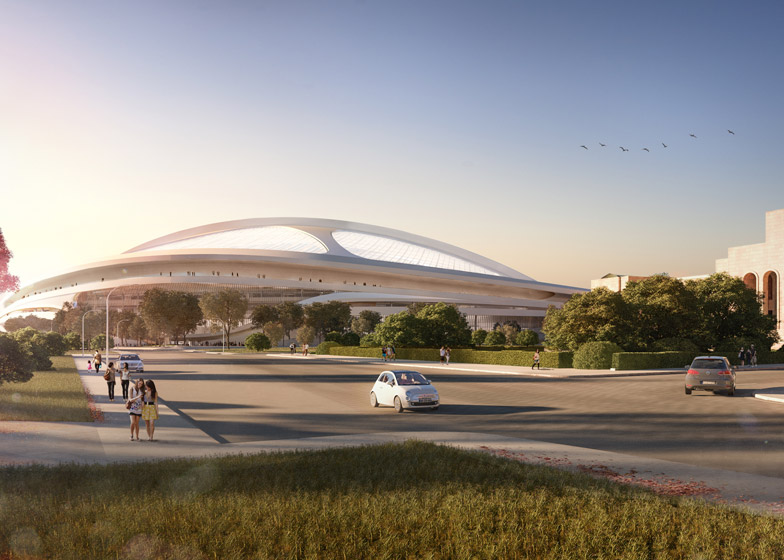Zaha Hadid Architects has had to give up its battle over the Tokyo 2020 Olympics stadium after failing to secure a construction company for its design.
Zaha Hadid teamed up with Japanese architecture and engineering firm Nikken Sekkei to renew its bid for the stadium design earlier this month, but the firms have announced that they will be unable to enter the competition.
"It is disappointing that the two years of work and investment in the existing design for a new National Stadium for Japan cannot be further developed to meet the new brief through the new design competition," said Zaha Hadid Architects (ZHA) in a statement.
A new design and build competition was opened for the project after the Japanese prime minister scrapped Hadid's original winning proposal in July 2015.
The competition requires entrants to form consortiums with firms that can carry out the construction and supervise the project build, but ZHA and Nikken Sekkei were unable to find suitable partners.
Hadid's original design faced backlash from the public and a number of high-profile Japanese architects, who complained that the stadium was too large and expensive.
The British-Iraqi architect hit back at the criticism in an interview with Dezeen in 2014, describing it as "embarrassing" and "hypocritical".
"They don't want a foreigner to build in Tokyo for a national stadium," Hadid told Dezeen. "On the other hand, they all have work abroad."
The revised guidelines for the new competition, which was launched 1 September 2015, cap the cost at ¥155 billion (£850 million) – a significant reduction compared to the ¥250 billion (£1.37 billion) estimate for Hadid's initial design. The amount of seating has also been scaled back.
Despite the set back, ZHA hopes to lend the knowledge gained during the project to whoever eventually wins the competition.
"Nikken Sekkei and ZHA are prepared and able to deliver a cost-effective stadium that meets the revised brief, is ready in good time for the 2020 Games and provides a new home for sport in Japan for generations to come," said ZHA.
"While the current competition is closed to the existing design team we stand ready to use the wealth of detailed knowledge and expertise, built up through the thousands of hours dedicated to the project, to assist the National and Tokyo Governments and Japanese people deliver a stadium fit to welcome the world in 2020 and go on to host national, international and community events for the next 50 to 100 years."
The Tokyo 2020 Olympics has also faced controversy over its logo, after claims that its designer Kenjiro Sano copied it from a Belgian theatre. Although Sano denied the accusations, his logo was withdrawn by the organising committee earlier this month.
Images are by Methanoia.

